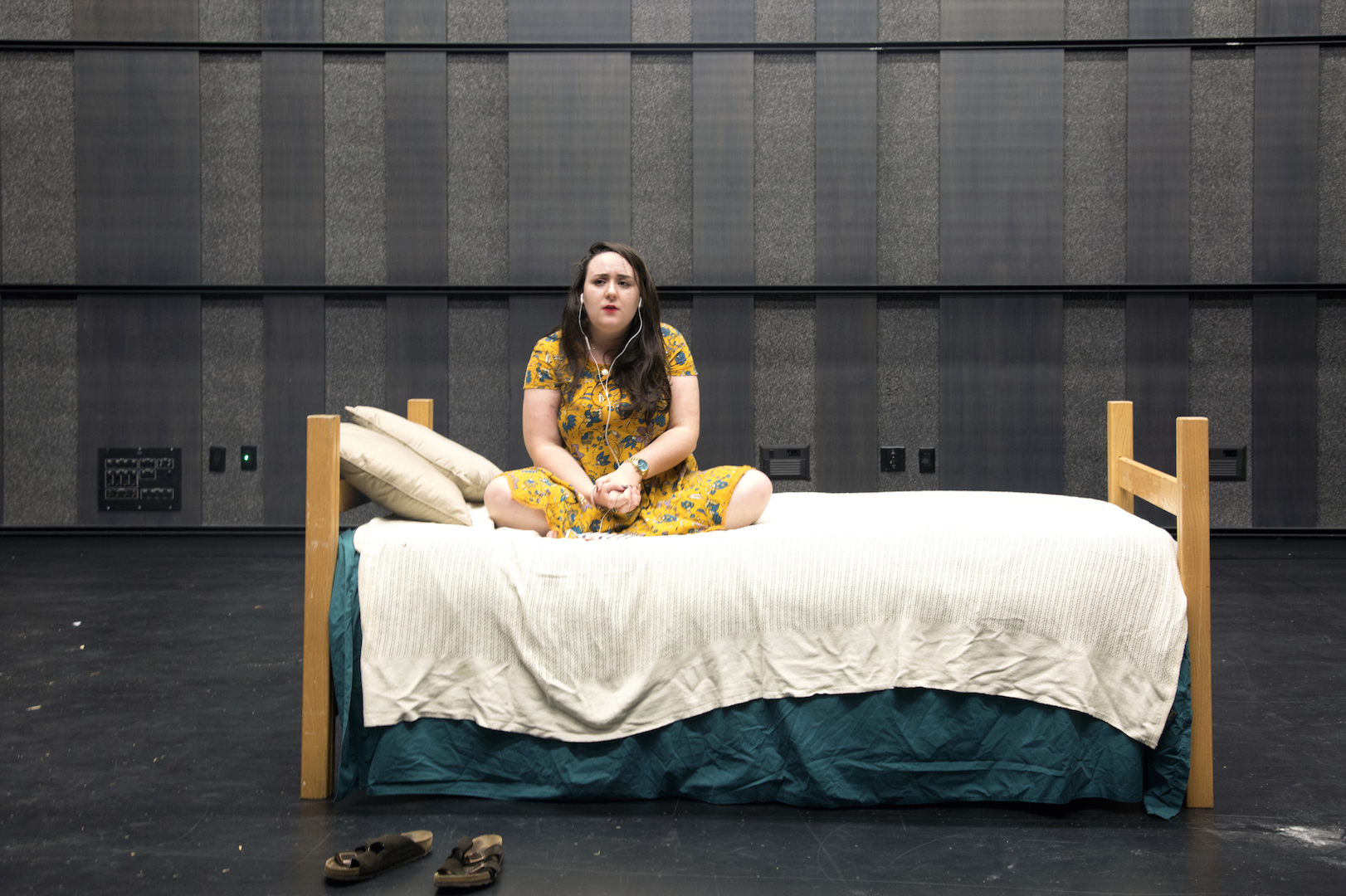
On September 8–9 at 7:30 p.m., Bridget Lavin ’18 will present her documentary theatre play,
Speaking Out
, in the Barrett Theatre of the Kennedy Arts Center.
The Spectator
had the chance to speak with Lavin about her production.
Speaking Out
, written and performed by Lavin, is a work of documentary theatre that tells the stories of sexual assault survivors verbatim from interviews. The play also works to challenge assumptions about sexual assault on college campuses.
Lavin was inspired to write
Speaking Out
while she was studying abroad in London last spring. She was looking at various grants for summer research and wanted to find something she could work on in both London and New York.
Lavin recalled, “Documentary theatre was always something that interested me. I took Theatre 102 with Mark Cryer, and I performed a monologue from a documentary theatre play and started to learn a lot more about the genre.”
Lavin has cared about the issue of sexual assault on college campuses for a long time, but she’s seen a flaw in the discussion. Lavin said, “So often we talk about statistics, but we don’t normally listen to the actual stories and think about what happened and how that has affected people who are survivors of sexual assault.”
In addition to interviewing survivors, Lavin’s writing process consisted of researching Title IX policy, rape culture and documentary theater. Much of that research went into a paper she wrote for the Levitt Center.
However, the content of
Speaking Out
is solely the words of sexual assault survivors on NESCAC campuses. For Lavin, the most challenging and frustrating part of the process was finding participants.
Lavin commented, “I didn’t realize how difficult that would be. I assumed that every school was going to have an organization equivalent to S.A.V.E.S. or to S.M.A.R.T.,and that they would have a contact on the website, but that was not the case. A lot of schools had administrators that were in charge of the groups, and a lot of those administrators really blocked my research. It was difficult to just get in contact with students. I think this told me a lot about the research I was doing into Title IX, and how campuses and administrations really control the message about sexual assault. If someone on these campuses wanted to speak out, they couldn’t because an administrator was essentially silencing those voices.”
Lavin decided to set the show in a dorm room. Lavin explained, “I created the set because it’s a very confessional piece. It’s about campus sexual assault, and your dorm room is one of the most private spaces on campus. If you were to just tell this story to your friend, often times it would happen within a dorm room. In keeping with the theme of college, I really wanted it to be in a dorm room because so much of your college experience happens there.
Additionally, often times campus sexual assault does happen in your dorm room, and how is your relationship to that space different when it’s a place where you felt great violence and great trauma,but also potentially a place of healing because it’s one of the best places you can go on a small college campus to be alone and really be with yourself.”
As the only actress in her show, Lavin has to be able to switch back and forth between survivors very quickly. Moreover, she encounters challenges and rewards in her acting.
Lavin said, “It’s intense. It’s really difficult because all of the survivors have different ways of reacting to the trauma that they faced. It’s also difficult to just talk for 40 minutes about deep and difficult things, but it feels really powerful to tell these stories.”
When asked what she hopes audience members will learn from the play, Lavin responded, “Every survivor is valid. They should be believed and we should listen.” She added, “It was really important to me that I let the survivors’ experiences shape what the production looked like. I went in just to listen, lend an ear and believe them.”
Posters advertising
Speaking Out
can be seen around campus. Even on the posters, Lavin found a way to incorporate the feelings of sexual assault survivors. She placed craft supplies in the Women’s Center and told survivors to stop by and paint anything abstract to cathartically express their emotions while maintaining anonymity.
Lavin, a theatre and women’s and gender studies double concentrator, hopes to continue with activist art in the future.

















